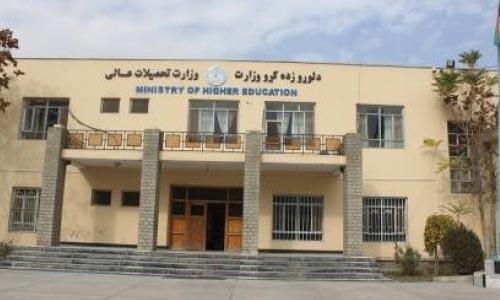
Closure Of 11 Higher Education Institutions Concerns, Demands And Clarifications
KABUL (Pajhwok): Officials and some students of higher education institutions have demanded the decision to close some higher education institutions should be reviewed, but the Ministry of Higher Education (MoHE), along with an explanation, considered the decision correct, and said that students of these institutions would be introduced to other educational institutions after the exams.
The Ministry of Higher Education said it had revoked the licenses of 11 private higher education institutions in nine provinces of the country due to non-compliance with academic, teaching, and administrative principles.
The licenses of Sultan Mahmud Ghaznavi of Ghazni, Abu Nasr of Farah, Hanzalah and Hekmat of Badghis, Fajristan of Takhar, Nimr of Kunduz, Royan and Quds of Baghlan, Sadat of Balkh, Maulana Jalaluddin Balkhi of Samangan, and Al-Ghayath of Herat higher education institutions have been revoked.
Pajhwok Afghan News has obtained a copy of a report from the MoHE's Academic Affairs Monitoring and Evaluation Department, which explained the reasons for the closure of the 11 higher education institutions.
The report stated that according to the registered numbers, there should have been a total of 2,498 students in these institutions, but during the ministry's assessment, there were 301 students in all these institutions and approximately 88 percent of the students were absent.
The source added that one out of 69 students was absent in Fajristan, one out of 236 students in Royan, ten out of 121 students in Nimr, none out of 222 students in Quds were present.
The report said that eight out of 588 students in Sadat, 21 out of 90 students in Maulana Jalaluddin Balkhi, 72 out of 587 students in Sultan Mahmud Ghaznavi, ten out of 85 students in Beh Abu Nasr, 37 out of 52 students in Al-Ghayyat, 38 out of 186 students in Hanzala, and 103 out of 262 students in Hekmat were present.
According to the source some other violations such as the lack of attendance, the lack of permanent lecturers, the lack of contracts of some contractual lecturers and the filling of attendance by several people were noticed during the assessment.
Hashim Farnood, head of the Fajristan Institute of Higher Education in Takhar, said that there was a specific procedure for evaluating private educational institutions, according to which this evaluation should have been conducted.
He said that this procedure stated that in case of violations, the first step is recommendation, then warning, and the final step is fine.
Farnood said:“The ministry says you have imaginary students and imaginary teachers, I say I don't, the ministry has made its own assessment without sharing it with us and has left, It should be assessed by a third party whether I have imaginary students and teachers or not.”
Qari Zabihullah Hajizada, head of the Mawlana Jalaluddin Balkhi Higher Education Institution, said:“This decision is unfair, there was no need for this decision to be made, if any institution is violating rules, there is a procedure to respond to the violations, there are laws, they should have been advised, warned, fined, their work in the ministry should have been suspended, this should have been done in the fifth and sixth stages. I am very sad that a university is operating in a remote province and then such a thing is done to it.”
He said a delegation visited the institution two months ago but no report about violations and wrong doings was shared with them.
He hoped the MoHE would review its decision because there was no other university operating in Samangan and he was worried about the future of his students.
However, Ziaullah Hashimi, a spokesman for the Ministry of Higher Education, told Pajhwok Afghan News that the decision to revoke the licenses of universities was not made all at once, and that the evaluation team visited each institution several times and the decision was made after recommendations and warnings.
Enaytullah, a student of law faculty in the Sultan Mahmood Ghaznavi Higher Education Institution in Ghazni province, said the decision to revoke the incenses of high education institutions left negative impact on students and put them in troubles.
“Now we have to transfer to another institution and it took a long time,” he said.
But Hashami said that these students were responsible for their decisions, they paid fee but did not attended the classes.
He said as part of cooperation, an examination would be taken from these students and then they would be referred to other institutions.
nh
Views: 0

Legal Disclaimer:
MENAFN provides the
information “as is” without warranty of any kind. We do not accept
any responsibility or liability for the accuracy, content, images,
videos, licenses, completeness, legality, or reliability of the information
contained in this article. If you have any complaints or copyright
issues related to this article, kindly contact the provider above.


















Comments
No comment